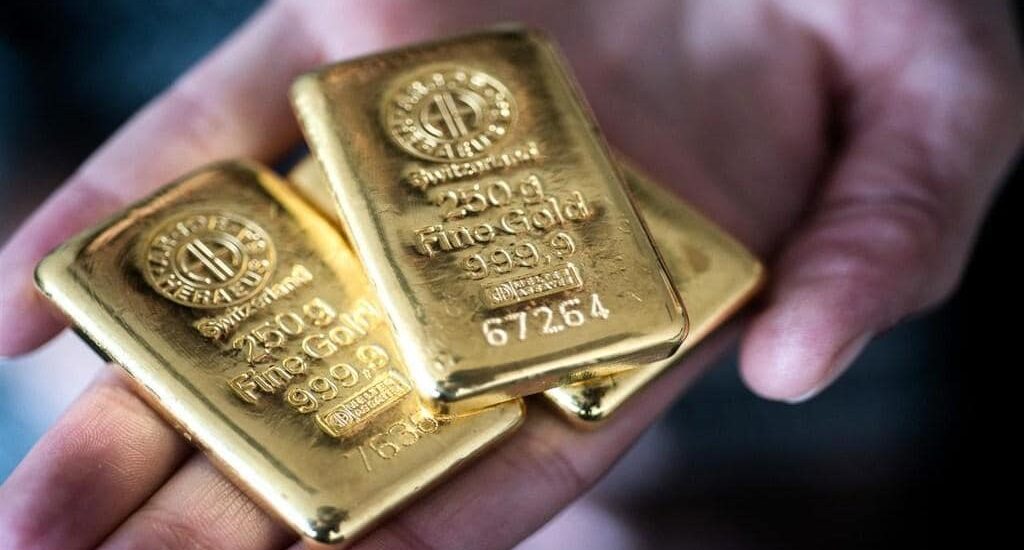How to avoid counterfeit gold coins?
- April 18, 2024
- Sent by:Rédaction GOLDMARKET
- Category:Gold prices

Buying gold as a gift or investing in gold as an investment is now more attractive than ever, thanks to the metal's historic safe-haven value. It's also within everyone's reach. However, as is often the case in business, there are a few rules to follow if you want to make an interesting purchase. These include monitoring the price of gold and recognizing counterfeits. As an investor or future investor, discover now the best practices to avoid counterfeit gold coins.
Buy certified gold
Buying and selling gold in France is a highly regulated business. In particular, each professional or sales outlet is obliged to complete and keep up to date a register, which contains a description of each item purchased and the name of the previous owner.
GoldMarket is able to offer you gold bullion coins that are certified and delivered under seal, accompanied by their nominative invoice. Branded with the seal of the Belgian mining and precious metals recycling company Umicore, our gold coins and bars benefit from the"Good Delivery" certification awarded by the London Bullion Market Association (LBMA). This validation guarantees, for example, the traceability, ethics and purity of the metal.
Save yourself from private sales
Buying gold outside official channels is not recommended. While professionals are subject to numerous rules, private individuals are not. Most of the time, they offer no spontaneous guarantee. The over-the-counter market is therefore a favorite playground for counterfeiters, who have no hesitation in selling their counterfeit goods there.
Whatever your choice, never hesitate to ask for a professional appraisal before acquiring physical gold. While you're waiting for it to be organized, and if the seller agrees, you can carry out a series of simple tests and checks to help you avoid counterfeit gold coins.
4 methods to assess the quality of your gold coins
Whether you're a numismatist, a hobbyist or an investor, there have been times when you've had doubts about the origin of the gold coin in your hands. Napoleon 20 francs, Liberty 20 dollars, Krugerrand or Souverain, they all make you dream, provided you can be sure of their authenticity.
Place your coin in front of a magnet
To quickly determine the purity of a coin or other gold object, use a strong enough magnet to move it. Sincereal gold is not magnetic, seeing your coin move will undoubtedly mean that it's a fake.
Weigh your part
Gold is a rather heavy metal, so if you're faced with a gold-covered coin whose core is made of another metal, it should be too light for its standard. The Napoléon 20 francs or, Coq et Marianne coin, for example, should weigh exactly 6.451 61 g when measured on an electronic scale.
Measure your room
Just as its weight is incredibly precise, your coin has a size all its own. A 10 Dutch Guilder gold coin has a diameter of 22 millimeters, which is easy to measure with a digital caliper, for example.
As a last resort: scratch the yellow metal
Do you own a vase or other unglazed ceramic object? Discreetly rub your piece on an inconspicuous surface. If the trace left is yellow, you're dealing with a gold piece. If it's black, it's counterfeit.
Different types of counterfeit
Gold has always been a coveted commodity. That's why some counterfeiters are relentless in their attempts to capitalize on the world's interest in the precious yellow metal, which the general public most often exchanges in the form of coins that are practical to store and offer an attractive return.
So, if you're looking to buy physical gold, it's the counterfeit gold coins you'll need to watch out for.
- Gold-plated metal parts can be identified by their lightness.
- Retouched gold coins contain imperfections, missing symbols or engraving and minting errors that help them to stand out.
- Lower grade gold coins are made of less pure gold than required by their standard.
- Gold-coated tungsten coins are currently the latest and best counterfeits. They are therefore harder to avoid.
Did you know?
Specialists believe that just about every French gold coin has been counterfeited in the course of history. Even so, the 20 franc gold Napoleon-type coins remain the most targeted by counterfeiters, and for good reason: they have long been resold for more than their weight in gold!
